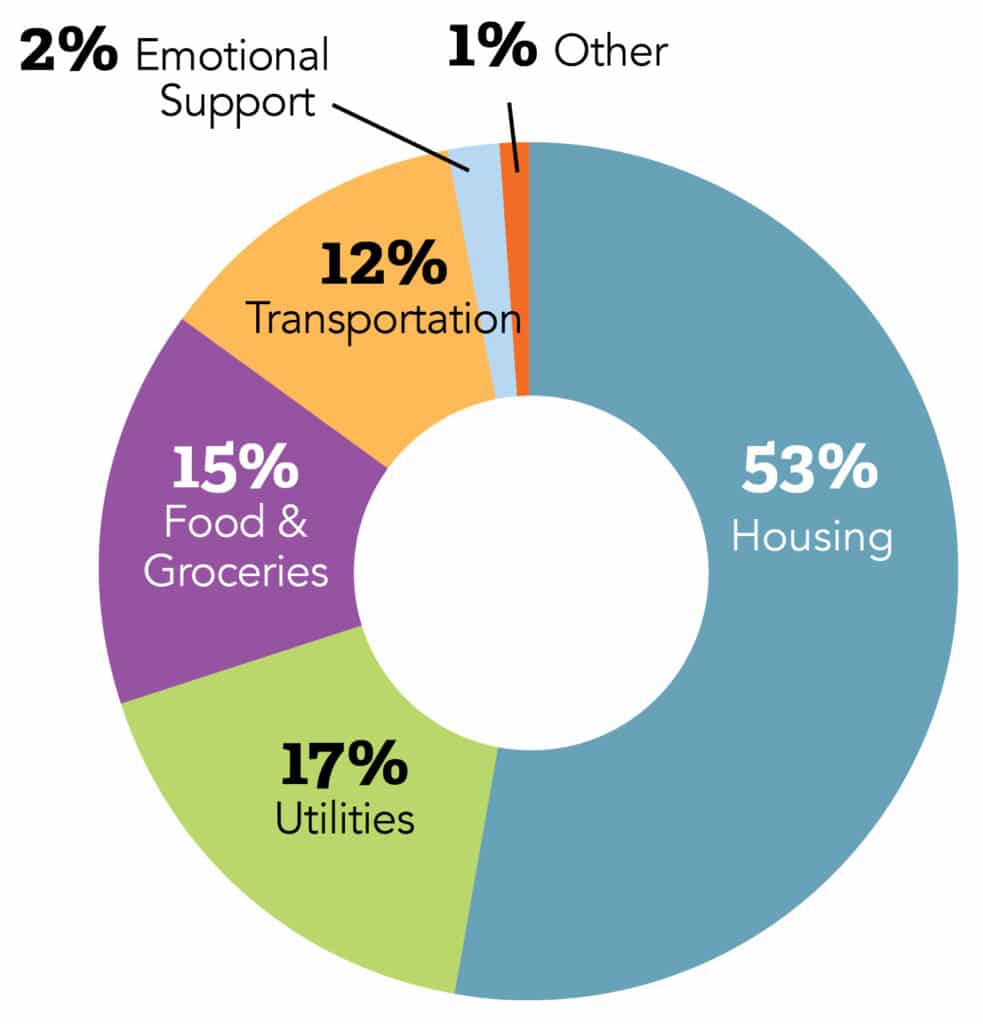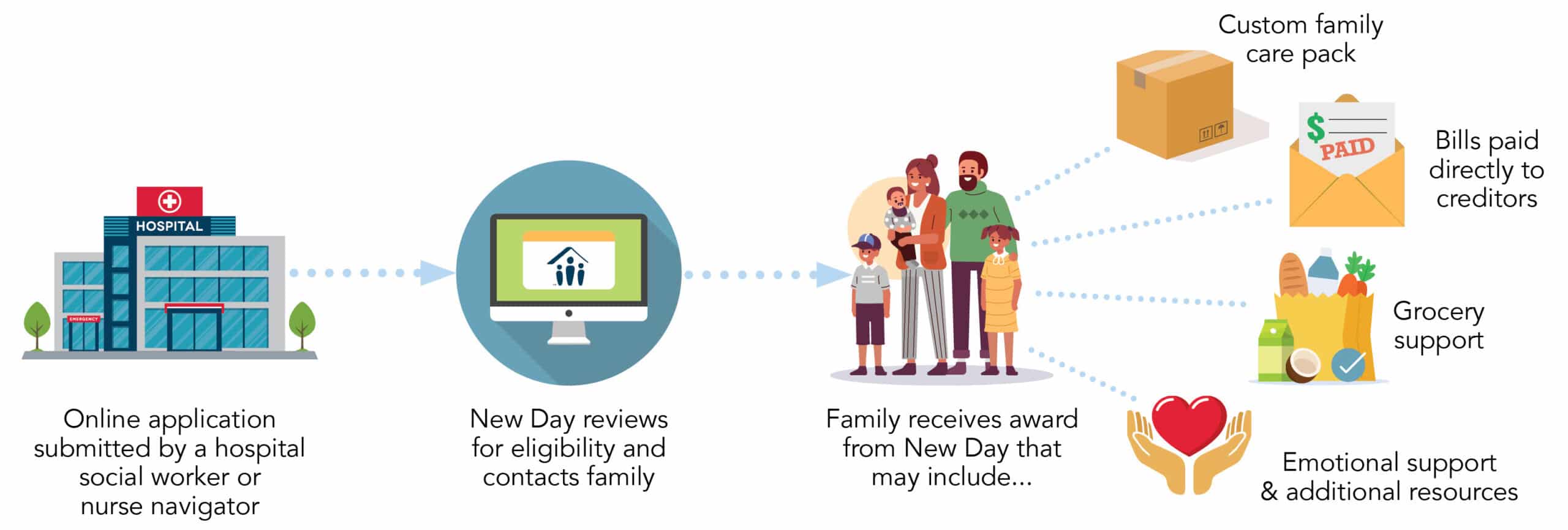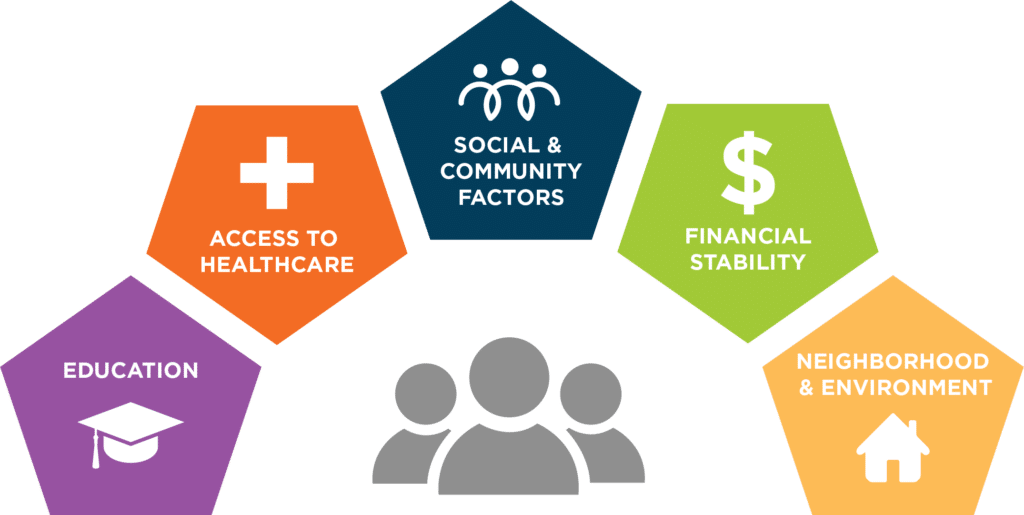

Please visit our Get Help page to see how to qualify for assistance. All applications must be submitted by your oncology social worker or medical professional.
Financial toxicity encompasses both an objective financial burden (increased monthly expenses coupled with loss of income) and subjective financial distress (how the financial crunch affects well-being).
Financial toxicity reaches beyond the high cost of cancer care, directly impacting the life expectancy of cancer patients. This financial distress is an unnecessary side-effect of cancer that New Day can help manage. New Day is a vital resource for families to help bridge the financial gap and bring profound hope in the fight against cancer.
We believe families come first. Their needs and survival are our priority. No family should fight cancer alone or make unthinkable choices between medical treatment and providing basic necessities
New Day pays critical living expense for families in active cancer treatment. That support may include rent/mortgage payments, utility bills, transportation costs (car loan payments, auto insurance, and fuel expenses), and grocery support. The chart below illustrates the allocation of financial support for 2023.

New Day provides financial assistance paid directly to creditors on behalf of families for critical living expenses. All applications must be submitted by your oncology social worker or medical professional.

Social determinants of health (SDoH) are the non-medical factors that influence health outcomes. They are the conditions in which people are born, grow, work, live, and age, and the wider systems that shape daily life.
While doctors do their absolute best to treat and manage a cancer diagnosis, they cannot help patients with the following side effects: foreclosure, bankruptcy, and food insecurity. Social determinants of health such as employment, education, transportation, housing, access to healthy food, and poverty are often a more reliable prediction of successful cancer outcomes than clinical care.
Cancer can affect anyone, but it doesn’t affect everyone equally. When talking about cancer, equity is when everyone has an equal opportunity to prevent cancer, find it early, and get proper treatment and follow-up after treatment is completed.
Disparities in health care should not define a patient’s chance of survival, but they do. Cancer is a negative force multiplier for individuals who already struggle to maintain a basic standard of living. Medical research shows that people are two times more likely to die of cancer if they have financial distress.
New Day is committed to removing these barriers to treatment by helping families pay the rent, covering their utility bills or car payments and providing fresh food. We will continue to advocate for vulnerable populations in the cancer community. It is our goal to reduce financial and emotional distress in order to level the playing field for all Michigan families facing a cancer diagnosis.
According to the United Way ALICE (Asset Limited, Income Constrained, Employed) Project, 38% of Michiganders struggle to meet a modest increase in household expenses, or a drop in income. This, coupled with an out-of-pocket cost ranging up to $2600 per month for cancer treatment, can lead to undue stress and anxiety, crippling debt, and bankruptcy. Even more startling, research also shows that the mortality rate for cancer patients doubles for those facing financial hardship.
It is New Day’s goal to assist residents in all 83 counties of the state, including areas where the largest concentration of individuals in the Asset Limited, Income Constrained, Employed (ALICE) category reside, by 2027.